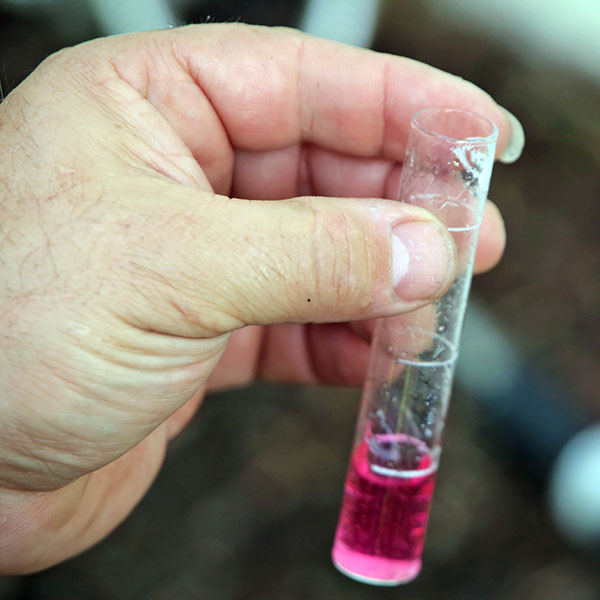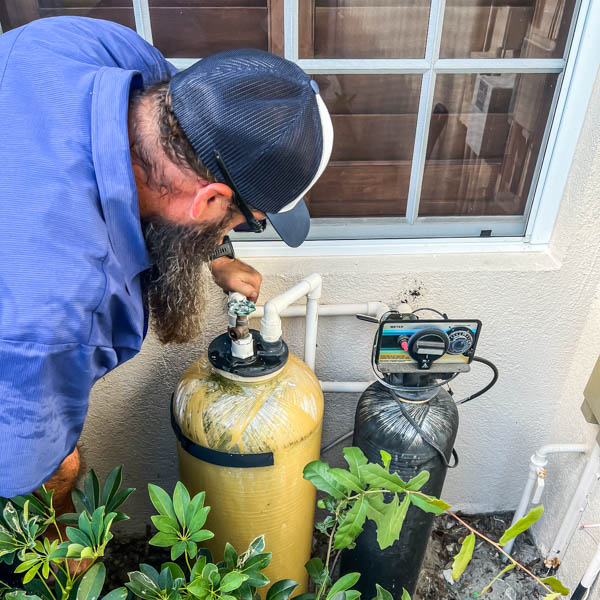What You Should Know About Water Neutralization
Water is everywhere. We use it to clean our clothes, water our plants, and run the dishwasher. Water is also an energy source, powering hydroelectric power plants and dams. It’s safe to say that water is essential to life: after all, our bodies need clean, healthy drinking water to survive. So what happens if your water is too acidic? Can you bring it back into a proper pH balance? Here’s what you need to know about water neutralization.
 What is acidic water?
What is acidic water?
One of the first things an Atlantic Coast Water Clinic technician will do during a home visit is to perform a water test. They’ll grade the results on a scale of 0 to 14, with a score of 0 meaning you have highly acidic water and a 14 indicative of water in an extremely alkaline state. A pH rating of 7 means that your water is neutral.
Scientifically speaking, water that is more acidic on the pH scale means that it has free hydrogen atoms in it. Water with a neutral pH rating of 7 means it has more free hydroxyl ions and is ideal for consumption.
Is acidic water dangerous?
Of course, this is all from a scientific perspective. What is the real-world application, meaning is acidic water dangerous? After all, water is water, right?
In a word, no. Acidic water can cause a variety of problems both in your home as well as for your health. Acidic water is commonly known as “hard water.” It can cause damage to your plumbing and leach metals into your drinking water. Lead is a common hard water metal, which can contribute to health issues such as memory problems, cardiovascular diseases, and even some cancers.
The four main causes of acidic water
Water becomes acidic in a variety of ways, most of which have a direct human activity correlation. Mining runoff, pollution, and increased carbon dioxide in the atmosphere are all effects caused by humans. In addition, the natural decomposition of plant life can contribute to the overall acidification of our water supply.
Steps to achieve water neutralization
As we mentioned earlier, the ideal pH rating of your water is a neutral 7. Treatment facilities have developed a thorough water neutralization process. This includes:
- Coagulation, where a technician adds positively-charged chemicals to the water supply;
- Flocculation, where water is mixed to form larger particles called flocs;
- Sedimentation, the settling of flocs at the bottom of the tank;
- Filtration, where the water is filtered from the settled particles;
- Disinfection, designed to kill parasites and bacteria.
This process, however, is geared toward community water supplies. For homeowners and businesses with a well, there are two primary possibilities to achieve water neutralization. Those are:
- Acidic water neutralization media, and;
- Chemical feed systems.
Water neutralization media is the faster and more economical method, while chemical feed systems are designed to remove multiple types of water impurities simultaneously.
 Working with the professionals
Working with the professionals
Water neutralization is often a tailored solution, requiring a water test to first determine the pH level of your water supply. Once you know that, you can then determine which solution is best for your home.
Our team offers both free water tests and free quotes for our various services. Ready to get started or learn more? Then contact Atlantic Coast Water Clinic at 772-283-4767 or request your free quote online!


 772-283-4767
772-283-4767